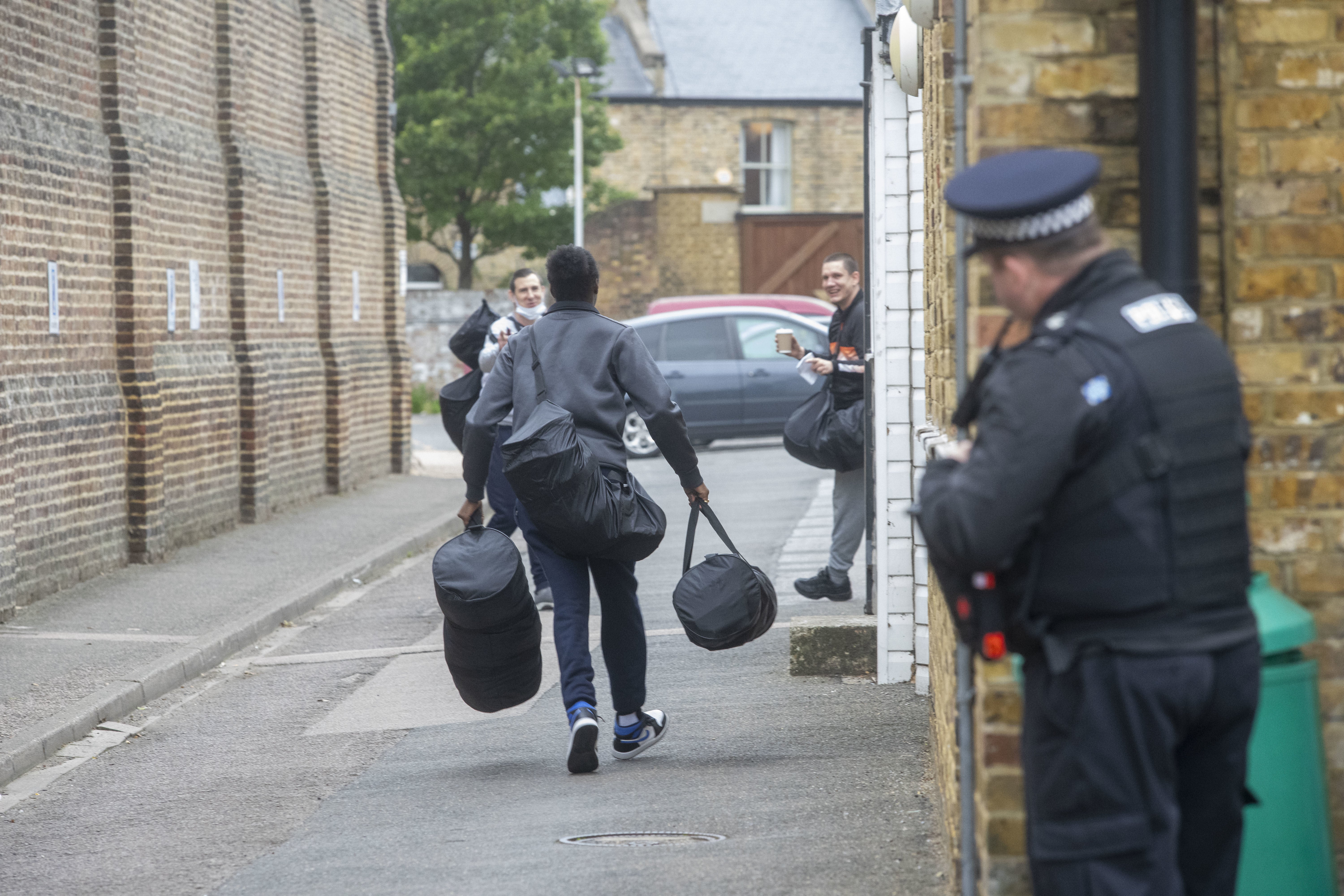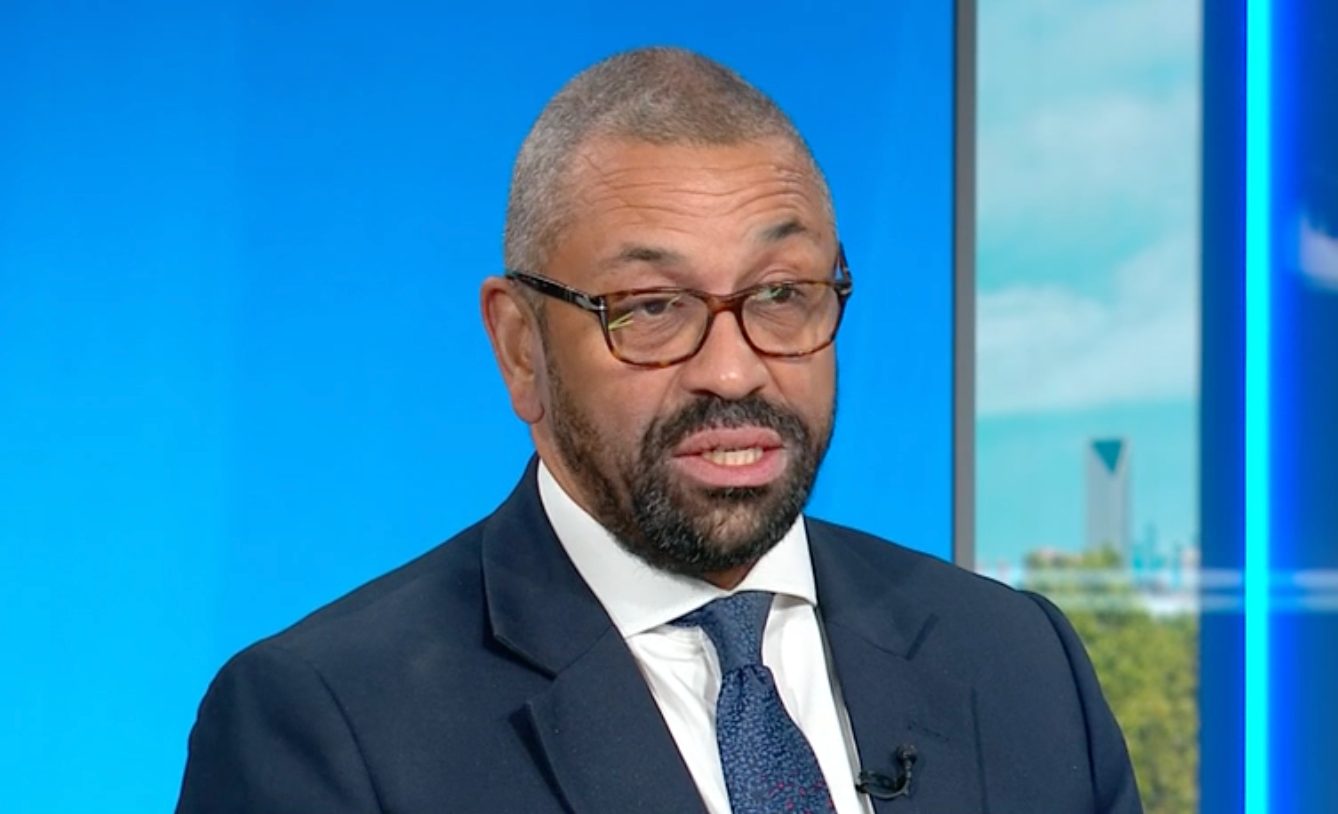Ministers accused of ‘rookie errors’ over early release scheme as freed prisoner allegedly commits assault
Prisoners were being freed under the early release scheme in a bid to tackle overcrowding in jails in England and Wales

Your support helps us to tell the story
From reproductive rights to climate change to Big Tech, The Independent is on the ground when the story is developing. Whether it's investigating the financials of Elon Musk's pro-Trump PAC or producing our latest documentary, 'The A Word', which shines a light on the American women fighting for reproductive rights, we know how important it is to parse out the facts from the messaging.
At such a critical moment in US history, we need reporters on the ground. Your donation allows us to keep sending journalists to speak to both sides of the story.
The Independent is trusted by Americans across the entire political spectrum. And unlike many other quality news outlets, we choose not to lock Americans out of our reporting and analysis with paywalls. We believe quality journalism should be available to everyone, paid for by those who can afford it.
Your support makes all the difference.Shadow home secretary James Cleverly has led concerns over the government’s early release scheme after a prisoner was accused of sexually assaulting a woman on the same day he was freed.
Around 1,750 inmates were released early from jails in England and Wales on Tuesday to alleviate the overcrowding crisis which is overwhelming prisons.
But following the move, it emerged a prisoner was accused of assaulting a woman on the same day he was freed. He has since been charged and recalled to prison ahead of a court date.
Appearing on Sky News’s Sunday Morning with Trevor Phillips, Mr Cleverly said the Tory party would not have taken the same action to tackle the rising number of inmates in prisons.
He said: “We’ve seen this for the winter fuel allowance and the prisoner release scheme. These are rookie errors by an arrogant and inexperienced government.”
He added: “Civil service have presented the neat and tidy answer that they wanted, which we could see was wrong. And again, this naive and inexperienced government went for it.
“And we’re now seeing the consequences with sexual offenders where, domestic abusers, career criminals are being released in huge numbers and it’s backfired, which is why we had said no to it.”
The alleged incident involving the freed prisoner has also alerted a leading academic figure.
Dr Hannah Bows, a professor in criminal law, told The Independent: “[There are] wider issues with rehabilitation and risk assessment of offenders. Whether released slightly early or on time we have big questions to ask about what we are acutely doing to prevent violence against women.”
Dr Bows, deputy director of the Centre for Research into Violence and Abuse at Durham University, argued just “locking men up doesn’t solve” the wider problem of violence against women and girls.
“Offenders should serve the appropriate sentence for the appropriate duration but what we do with that time is critical to prevent reoffending and at the moment we’re letting down both victims and offenders,” she added.
Downing Street said hundreds of prisoners must be released early to prevent “unchecked criminality” whereby the criminal justice system cannot imprison those who break the law.
The new policy sees the proportion of sentences which some inmates must serve behind bars temporarily curbed from 50 per cent to 40 per cent. Terrorists and sex offenders are excluded and will not be released early.
Inmates serving prison sentences of less than four years for violent offences, including manslaughter, are among those eligible to be freed under the scheme.

Alan Collins, a lawyer who represents victims of sexual abuse, said: "There is a strong likelihood that we will see reoffending by those who probably should not have been released. Surely it was not beyond the wit of man to have adopted an alternative strategy."
Earlier in the week, The Independent reported on fears that have been raised that domestic abusers are “slipping through the net” of the government’s early release scheme for prisoners and victims could be placed at grave risk.
A Ministry of Justice spokesperson said: “The government inherited prisons in crisis and on the brink of collapse. Had that happened, the courts would have been unable to hold trials and the police to make arrests.
“We had no choice but to introduce emergency measures, releasing some prisoners a few weeks or months early, while excluding a number of offences and imposing strict licence conditions.
“While we cannot comment on the details of any single case, those who break their licence conditions or commit further crimes will be punished.”
Join our commenting forum
Join thought-provoking conversations, follow other Independent readers and see their replies
Comments